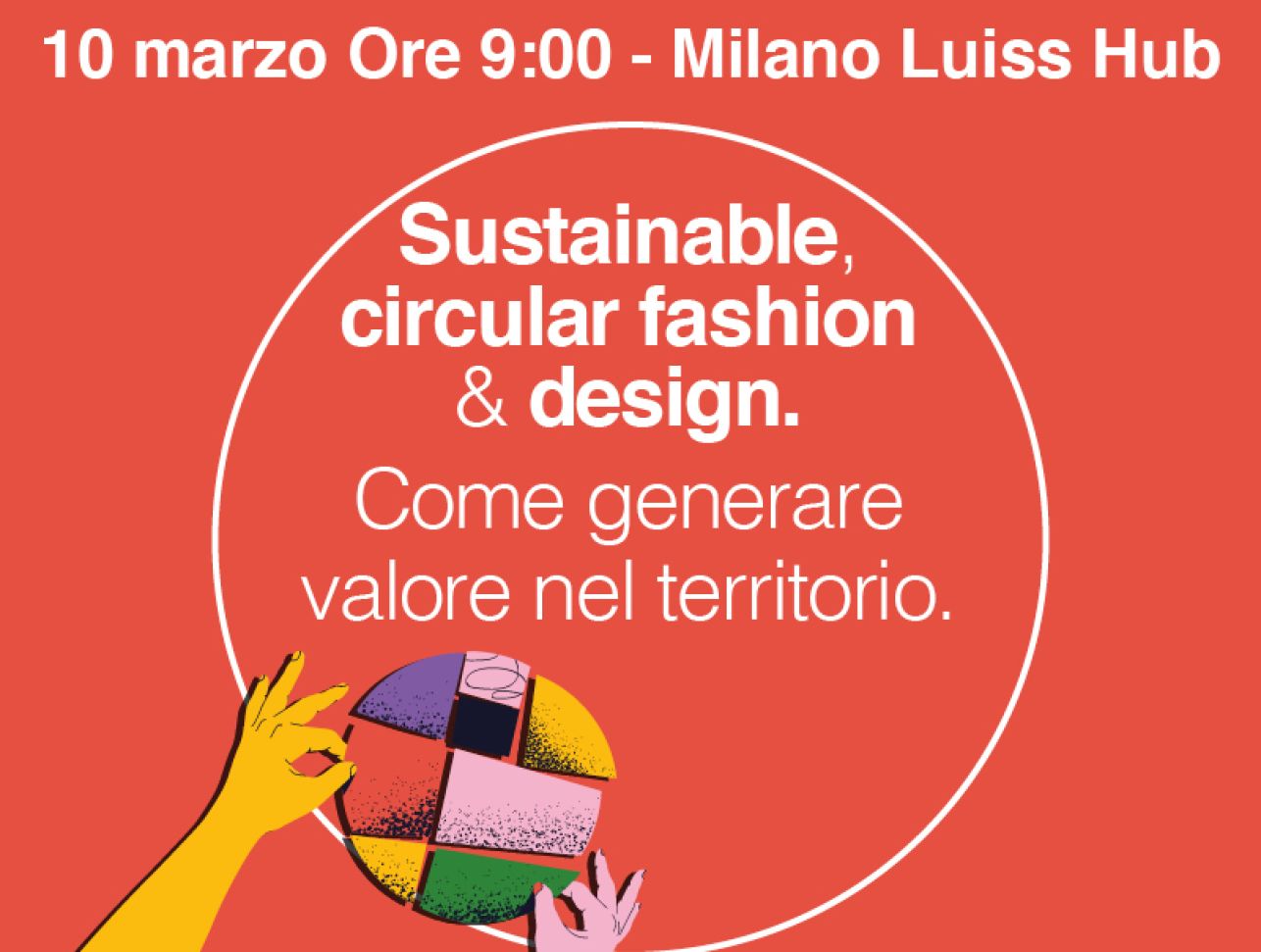Circular economy, innovation, and education for Milan 2025. Technology and sustainability come together to transform the fashion and design sector.
On March 10, 2025, Milan will host the event “Sustainable, Circular Fashion & Design – How to Create Value for the Territory” at the Milano Luiss Hub, a meeting point for ideas and innovations in the field of sustainable fashion and design. The initiative, with the support of the city of Milan, the MUSA project and BioEcoGeo, will focus on the themes of the circular economy and sustainability, exploring advanced technological tools such as the Digital Passport and Blockchain to enhance supply chain traceability and combat counterfeiting.
The event will feature a series of panels dedicated to innovations in products, materials, and processes, sessions on sustainable business models, and insights into circular fashion management. A significant emphasis will be placed on matchmaking between companies and young entrepreneurs, as well as discussions with incubators and accelerators to support startups and SMEs. The initiative aims to foster dialogue between academia, businesses, and institutions—a crucial step to facilitate the transition toward more responsible production models. Sustainability and the circular economy are now fundamental pillars for the fashion, design, and luxury sectors. With the growing pressure of climate change and the expectations of more conscious consumers, the industry is adopting innovative practices to reduce its environmental and social impact. Among the planned activities, special sessions for schools and technical institutes will stand out, designed to engage young people with the themes of circularity and sustainability. This educational approach is essential to prepare new generations to actively contribute to the sector’s transformation.
During the event, the book “Circular Fashion Management – Ideas, Perspectives, and Tools to Catalyze Change”, curated by Francesca Romana Rinaldi, will be presented. This essential guide explores the opportunities offered by the circular model, addressing not only environmental impact but also social implications and governance strategies. Through an integrated approach to ESG criteria (Environmental, Social, and Governance), the book provides practical tools for all companies, with a particular focus on SMEs, and suggests new pathways for creating transparent and circular value chains.
The contribution of the MUSA project further underscores the importance of the event, solidifying Milan’s role as a center of excellence for sustainable innovation. The universities of Bicocca, Politecnico di Milano, Statale, and Bocconi will participate as academic partners, offering high-level scientific and educational support. Sustainable, Circular Fashion & Design also aims to strengthen Lombardy’s position as a hub of sustainable innovation by creating opportunities for local businesses and startups. With the support of the Municipality of Milan, it promotes new business models and responsible practices within the sector.





